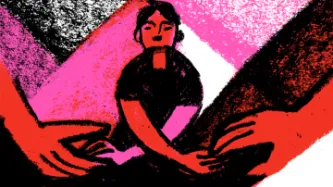Search
Content type: Long Read
Period tracking apps and the rollback of reproductive rightsThe aftermath of the overturning of Roe v. Wade in the United States (US) sparked widespread debate and concern that data from period tracking apps could be use to criminalise those seeking abortion care.While the surveillance and criminalisation of reproductive choices are neither new nor unique to the US, the scale and intensity of today’s crisis continue to grow. To put it into perspective, 22 million women and girls of reproductive…
Content type: Long Read
Introduction
The 28th of September marks International Safe Abortion Day. It remains a day necessary to mobilise and raise awareness of the continued struggles women and girls face when accessing reproductive healthcare, including access to safe abortion. Across the world, abortion continues to be criminalised, restricted and in some places under attack. All of which constitute severe obstacles for women and girls to fully exercise their human rights, particularly their right to privacy, which…
Content type: Long Read
In the wake of the recent news of the US Supreme Court’s decision to overturn the ruling of Roe v Wade in its ruling in Dobbs v Jackson Women's Health Organization, headlines have been dominated by conversations around privacy and fears of how the criminalisation of abortion care and surveillance by law enforcement will play out in a tech driven world.This discussion is increasingly important as governments move towards digitising their healthcare systems and as more individuals choose to…
Content type: Long Read
This piece is a part of a collection of research that demonstrates how data-intensive systems that are built to deliver reproductive and maternal healthcare are not adequately prioritising equality and privacy.
What are they?
Short Message Services (SMS) are being used in mobile health (MHealth) initiatives which aim to deliver crucial information to expecting and new mothers. These initiatives are being implemented in developing countries experiencing a large percentage of maternal and…
Content type: Long Read
India’s Mother and Child Tracking System (MCTS) is a system that collects vast amounts of data about pregnant people, children, and families. It is an initiative by the Ministry of Health and Family Welfare in India, and was first trialled in 2009. It was then rolled out nation-wide in 2011. Its declared purpose, as stated in the press release accompanying it, was to facilitate “ensuring timely delivery of full spectrum of health care services to pregnant women and children up to 5 years of age…
Content type: Long Read
1. What are the barriers to access safe and legal abortion care?
The Indian state’s approach to reproductive rights historically has focused on population control rather than enhancing individual autonomy and removing structural barriers to reproductive health services, which is reflected in the barriers to provision of services. As a consequence of the early adoption of family planning and population control measures in the 1950s, India was one of the first countries to legislate on abortion…
Content type: Long Read
This piece was written by Aayush Rathi and Ambika Tandon, who are policy officers at the Centre for Internet and Society (CIS) in India. The piece was originally published on the website Economic Policy Weekly India here.
In order to bring out certain conceptual and procedural problems with health monitoring in the Indian context, this article posits health monitoring as surveillance and not merely as a “data problem.” Casting a critical feminist lens, the historicity of surveillance practices…






